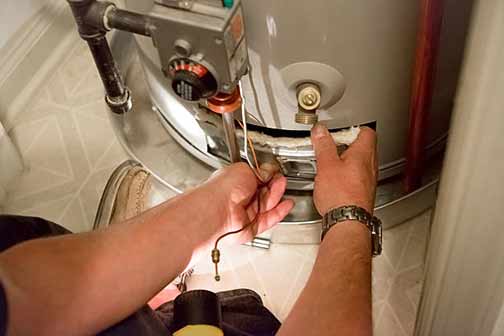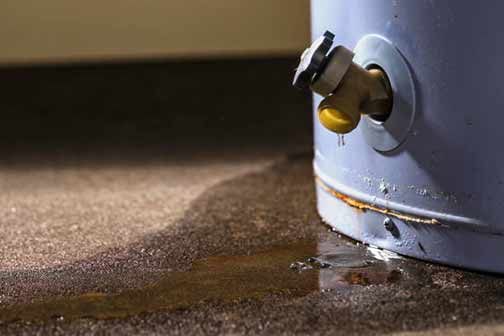Understanding the Importance of Water Heater Maintenance
Water heaters are essential appliances in our homes, providing us with hot water for various daily activities such as bathing, cooking, and cleaning. They play a critical role in maintaining our comfort and hygiene. However, like any other appliance, water heaters require regular maintenance and attention to function efficiently and safely. Ignoring warning signs can lead to costly repairs or replacements, and even pose safety risks. Therefore, understanding these warning signs is crucial for every homeowner. Regular maintenance not only ensures a steady supply of hot water but also extends the lifespan of the water heater, saving you money in the long run.
Water heaters, whether tankless or traditional, are complex systems that involve electrical, gas, and plumbing components. This complexity means that they can develop a range of issues over time, especially if not properly maintained. The importance of water heater maintenance cannot be overstated, as it directly impacts the appliance’s efficiency and safety. Regular inspections and timely interventions can prevent minor issues from escalating into major problems, ensuring that your water heater remains in optimal condition.
Warning Sign #1: Unusual Noises from the Water Heater
If your water heater begins to make strange noises such as popping, rumbling, or banging, it might be a sign of sediment buildup at the bottom of the tank. This sediment can cause the water heater to work harder, leading to inefficiencies and potential damage. Regular flushing of the tank can help prevent these noises and ensure the water heater operates smoothly. Ignoring these noises can result in decreased efficiency and increased energy bills, as the heater struggles to maintain the desired water temperature.
These unusual noises are often caused by the heating of trapped air bubbles in the sediment. As the sediment builds up, it creates a barrier between the heating element and the water, causing the heater to overwork. Over time, this can lead to overheating and potential damage to the heating element. Regular flushing of the tank is a simple yet effective way to prevent sediment buildup and ensure the efficient operation of your water heater. It is recommended to flush your water heater at least once a year to maintain its performance and longevity.
Warning Sign #2: Inconsistent Water Temperature
Another crucial warning sign is when the water heater fails to maintain a consistent water temperature. If you notice that your hot water fluctuates between scalding and lukewarm, it could indicate a malfunctioning thermostat or heating element. Addressing this issue promptly can prevent further damage and ensure your comfort and safety. Inconsistent water temperature can also be a sign of a failing dip tube, which is responsible for directing cold water to the bottom of the tank for heating.
Inconsistent water temperature can be frustrating, especially when you rely on hot water for daily activities. It can also pose safety risks, as sudden changes in water temperature can lead to scalding or discomfort. To address this issue, it is important to check the thermostat settings and ensure they are set to the recommended temperature. If the problem persists, it may be necessary to replace the thermostat or heating element. Contacting a plumber can help diagnose the issue accurately and recommend the appropriate solution.
Warning Sign #3: Leaking Water Heater
Leaks are a serious warning sign that should never be ignored. A leaking water heater can cause significant water damage to your home and may indicate a failing tank. If you notice water pooling around your water heater or signs of rust, it’s essential to call a plumber immediately to assess the situation and prevent further damage. Leaks can occur due to a variety of reasons, including corrosion, loose connections, or a damaged pressure relief valve.
Water leaks can lead to extensive damage to your home’s structure and belongings, resulting in costly repairs. They can also create an environment conducive to mold growth, posing health risks to you and your family. To prevent leaks, it is important to regularly inspect your water heater for any signs of corrosion or damage. Tightening loose connections and replacing worn-out components can help prevent leaks and ensure the integrity of your water heater. If you suspect a leak, it is crucial to turn off the water supply and power to the heater and seek professional assistance immediately.
Warning Sign #4: Discolored Water
Discolored water coming from your taps can be a sign of corrosion inside the water heater tank. Rusty water not only affects the taste and appearance of your water but can also indicate that the tank is deteriorating. Regular inspections and maintenance can help identify and address corrosion issues before they lead to tank failure. Discolored water can also result from sediment buildup, which can affect the quality of your hot water.
Corrosion inside the water heater tank is often caused by a failing anode rod, which is designed to attract corrosive elements and prevent them from damaging the tank. Over time, the anode rod can become depleted, leading to corrosion and rust in the tank. Replacing the anode rod regularly can help prevent corrosion and extend the life of your water heater. If you notice discolored water, it is important to address the issue promptly to prevent further deterioration of the tank.
Warning Sign #5: Reduced Hot Water Supply
If you find yourself running out of hot water more quickly than usual, it may be a sign that your water heater is struggling to meet the demand. This could be due to sediment buildup, a malfunctioning heating element, or an undersized water heater for your household needs. Evaluating the situation and considering upgrades or repairs can help restore your hot water supply. Reduced hot water supply can be particularly inconvenient for larger households with higher hot water demands.
Sediment buildup can reduce the available space for hot water in the tank, leading to a decreased hot water supply. Similarly, a failing heating element can result in insufficient heating, causing the water to run out quickly. Upgrading to a larger water heater or installing a tankless system can help meet the increased demand for hot water. Regular maintenance and inspections can help identify the cause of reduced hot water supply and ensure that your water heater operates efficiently.

Proactive Measures for Water Heater Maintenance
To avoid the inconvenience and cost associated with water heater issues, taking proactive measures is essential. Regular maintenance, such as flushing the tank, inspecting the anode rod, and checking for leaks, can extend the life of your water heater and ensure it operates efficiently. Additionally, scheduling professional inspections annually can help identify potential problems early on. Proactive maintenance not only prevents unexpected breakdowns but also improves the overall performance of your water heater.
Flushing the tank regularly helps remove sediment buildup, ensuring that the heating element operates efficiently. Inspecting the anode rod and replacing it when necessary can prevent corrosion and prolong the life of the tank. Checking for leaks and addressing any issues promptly can prevent water damage and costly repairs. Scheduling annual professional inspections can help identify potential problems and ensure that your water heater remains in optimal condition. By taking these proactive measures, you can enjoy a reliable supply of hot water and avoid the inconvenience of unexpected breakdowns.
The Role of Professional Assistance
While some maintenance tasks can be performed by homeowners, others require professional expertise. Hiring a local plumber to inspect and repair your water heater can prevent small issues from becoming major problems. Professionals have the tools and knowledge to assess the condition of your water heater and recommend the best course of action. They can also provide valuable advice on how to maintain your water heater and extend its lifespan.
Professional technicians are trained to diagnose and repair a wide range of water heater issues, ensuring that your appliance operates safely and efficiently. They can identify potential problems that may not be apparent to homeowners and provide solutions to prevent further damage. By hiring a professional, you can have peace of mind knowing that your water heater is in good hands and that any issues will be addressed promptly and effectively. Regular professional inspections and maintenance can help prevent costly repairs and extend the life of your water heater.
Cost Implications of Ignoring Water Heater Warnings
Ignoring warning signs can lead to costly repairs or even necessitate a complete water heater replacement. The cost of addressing issues early is often much lower than the expenses incurred from major failures. By being attentive to warning signs, homeowners can save money and avoid the inconvenience of being without hot water. Ignoring water heater warnings can also lead to increased energy bills, as the heater struggles to operate efficiently.
Repairing or replacing a water heater can be a significant expense, especially if the damage is extensive. By addressing issues early, homeowners can avoid the high costs associated with major repairs or replacements. Regular maintenance and inspections can help identify potential problems before they escalate, allowing homeowners to take corrective action and save money in the long run. Additionally, maintaining an efficient water heater can help reduce energy consumption and lower utility bills, providing further cost savings.
Ensuring Safety and Efficiency
Safety is a paramount concern when it comes to water heaters. Ignoring warning signs not only risks damage to the appliance but can also pose safety hazards such as leaks and water damage. Ensuring that your water heater is functioning efficiently and safely protects your home and family. Regular maintenance and inspections can help identify potential safety risks and ensure that your water heater operates safely.
Water heaters that are not properly maintained can pose a range of safety risks, including leaks, water damage, and even explosions. By addressing warning signs promptly and performing regular maintenance, homeowners can mitigate these risks and ensure the safety of their home and family. Regular inspections can help identify potential safety hazards and provide solutions to prevent accidents. By prioritizing safety and efficiency, homeowners can enjoy a reliable supply of hot water without compromising the safety of their home.
Conclusion: Taking Action on Water Heater Warnings
In conclusion, recognizing and addressing the warning signs of water heater trouble is crucial for maintaining the appliance’s efficiency and safety. By taking proactive steps and seeking professional assistance when needed, homeowners can prevent costly repairs and ensure a reliable supply of hot water. Regular maintenance and attention to warning signs are key to extending the life of your water heater and safeguarding your home. By being vigilant and proactive, homeowners can enjoy the comfort and convenience of hot water without the worry of unexpected breakdowns.
Water heaters are an essential part of our daily lives, providing us with the hot water we need for various activities. By understanding the importance of maintaining your water heater and recognizing warning signs, homeowners can ensure that their water heater operates efficiently and safely. Taking action on water heater warnings not only prevents costly repairs but also provides peace of mind, knowing that your appliance is in good condition. By prioritizing maintenance and seeking professional assistance when needed, homeowners can enjoy the benefits of a reliable and efficient water heater for years to come.


